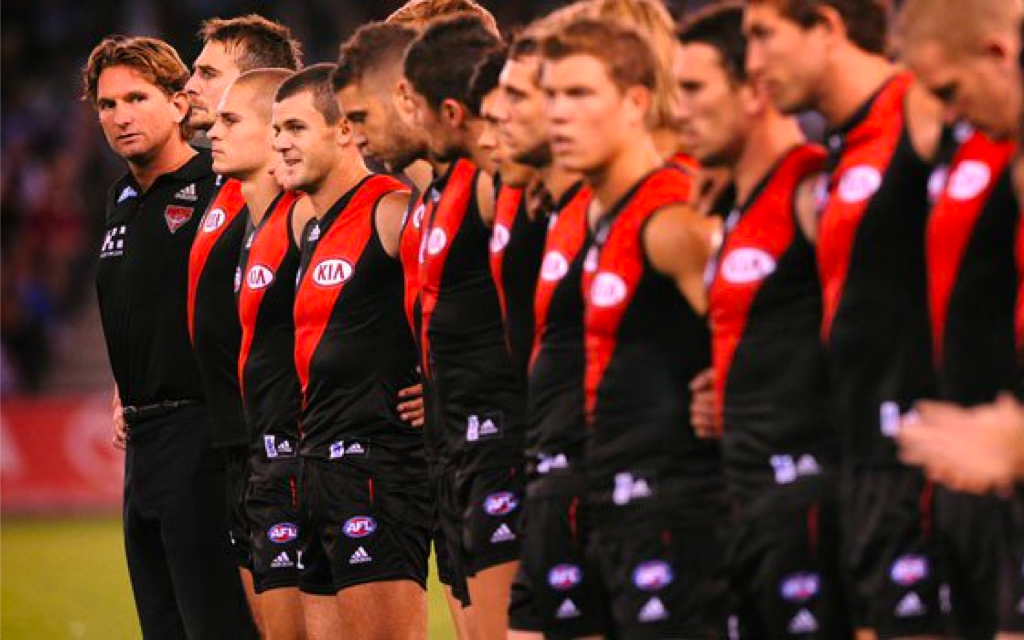High performance’ seems to be a trendy term at the moment. Many leaders in the sports and business worlds believe that creating a culture that demands and rewards performance over all else is key to success.
Though support for this philosophy appears to be widespread, very few organisations that believe in a ‘high performance’ approach experience consistent success. So if it is so good and everyone is doing it, why aren’t more of these teams achieving their goals?
Leaders who transform teams of champions into champion teams are those who recognize that performance is merely a by product of purpose. These leaders work to foster shared purpose among their people, and in the process build cultures that produce the ultimate success.
The Profit Motive, Pressure & Performance.
As an industry, sport has grown exponentially over the past twenty years. Today it is more popular and profitable than ever. This growth has seen it develop into a 145 Billion-dollar industry, and it got this way because of two things: community and entertainment.
Community is more important than ever, because even though technology has connected us digitally, more and more people feel isolated from others. Walk onto any train and you will see people with heads down, earphones on. Except of course for that one day in the week… game day.
Sport gives us a reason to smile or even talk to the stranger next to us on train, in the bar or on the sidewalk. More and more people see and use sport as a means to become a part of a tribe, or movement bigger than themselves. This instinct is what makes us human, and it’s why we sit on top of the food chain.
Entertainment has changed, now everything is on demand, that means audiences are mostly fragmented. Sport is one of the few entertainment products that can command the attention of millions of people all around the globe at one time. These days, holding any one persons attention is extremely hard, and that is why sport has become extremely valuable.
It costs 8 million dollars to buy sixty seconds of advertising space during the super bowl. It cost this much because 108 million people are watching. Companies continue to pay more and more each year for access to these slots, because opportunities are scarce and significant returns are seen on the investment.
But what relevance is all this to coaches?
Increased attention has created more opportunities to make money, and as more money has flowed into the sports industry, so have the moneymen. In many pro sporting organisations today, there are more staff employed to make and manage money, than to make and manage champions.
For most teams and their staff, more money has meant better pay, facilities, equipment and resources. But money has also brought with it new and unique challenges. The pressure to maintain profitability can often stifle success, creativity and cooperation among colleagues.
When sport becomes a business, wins can go from feedback on proper process and practice, to numbers that impact the bottom line. When the focus shifts too far from process to outcome, those under pressure to drive profitability in order to justify their jobs begin talking about ‘high performance’ and can often forget about people.
Research in behavioural economics has shown that when people think about money, they act more selfishly. This is one reason the profit motive can be damaging to the culture of a sports organisation when the pressure to be profitable is referred to the team and its leaders.
Peter Drucker is pretty much universally recognised as the father of modern management. Drucker disagreed with the profit motive, suggesting that profit is not the end goal of a business, but merely an indicator a business was progressing toward or successful in achieving its chief aim.
Chief aim is just another fancy name for an organisations core purpose or mission.
Ford’s chief aim was to democratise the automobile.
Disney’s core purpose was to make people happy.
Air Bnb’s mission is to create a world where you can belong anywhere.
The chief aim is essentially the reason any organisation exists.
Drucker contended that without a clear and compelling purpose, a business is no more than a means to make money. But since money undermines cooperation and teamwork, no business that purely chases numbers and profit, can ever be truly great. Sport is not about making money, its about being great.
When organisations lack, or lose sight of a core purpose, it can be easy to lean on the numbers. Numbers are easy to measure, and encourage optimisation, but when you don’t know what you’re optimising for, the number becomes the end goal. When numbers become the end goal, this can and often does lead people astray…
Abstraction and Infraction
Numbers make it easy to objectify people because they create distance and cause what author Simon Sinek calls ‘abstraction’. We can see how numbers and distance interact to cause abstraction in sport when media commentators discuss athletes in this manner:
‘Player number 10 Tyler walker has only scored 8 points or more on less than 3 occasions for the past 2 seasons. Surely he should be cut or at least traded Ken!’
The more we lean on the numbers, the less regard we show for people. When executives discuss measures to improve the bottom line, it can be easy to forget that those numbers represent real people:
‘Our profitability has dropped 20% since last year, we need to cut our operating expenses by $500 000, if we make 10 jobs redundant then we should record a profit for our next quarter’
Numbers create distance, and distance causes abstraction. When abstraction occurs in the name of ‘performance’, people who are otherwise moral and principled become more selfish, less ethical and more prone to bend or break the rules.
One of the biggest scandals in world sport occurred at the Essendon Football Club during the 2012 AFL season. During that season the football program endorsed, funded and aggressively pursued a controversial supplements program. The World anti doping authority ultimately deemed their approach to be cheating.
James Hird, Essendon’s coach at the time wrote about the club culture and the messages from club leaders in an article published in the Herald Sun on the 15thof January 2016:
“We were a tight unit, High performance was the mantra from top to bottom with club president David Evans driving us to find the best ways to do everything we did.
This drive extended to making sure the players had the most beneficial and modern training regimens, diets and dietary supplements under the high performance program…..
At this time the use of painkillers, anti-inflammatory and sleeping tablets were the norm but would lead to side effects such as long-term arthritis, long-term neural pain, eroded stomach linings, addictions and sleeping disorders, to name a few.
To subject modern players to these “old world” methods and consequences would have been “low performance” at best and negligent at worst, especially given there had been so many developments in sports science since my time as a player”.
People have a tendency to blindly obey authority, even when the required actions are questionable. Yale Psychologist Stanley Milgram’s famous electric shock experiments showed that our ability to reason is fundamentally compromised under orders from above. Milgram also showed that the more physical distance between someone and the outcome of their actions, the less humane they were.
Clearly none of the Essendon players believed they were doing the wrong thing, or if they did they deferred to the ‘better judgement’ of authority figures at the club whom were hell bent on ‘high performance’ and over emphasised the numbers. In retrospect it is easy to see that abstraction caused the whole organisation to delude themselves.
Performance is not the Same as Success
Essendon’s most bitter rival is the Hawthorn Football club. The two clubs have rich history of conflict that is decades old. Since 2012 when the supplement scandal erupted, Hawthorn have appeared in four grand finals, and successfully won three of them. They are one of the greatest teams the game has seen.
Hawthorn has worked hard to become what they themselves refer to as ‘the family club’. Their head coach Alastair Clarkson has led the team for over ten years, and their staff have experienced very little turnover (save for those assistants who have gone on to become head coaches themselves).
Some will argue that a relentless culture focused on performance can yield results and they would be right — to a point. Some ‘high performance cultures indeed maintain decent winning margins, but performance is not the same as success. Love always conquers fear, and fear is no match for love.
The New England Patriots are one of the most successful NFL teams of the modern era. The Patriots have Won super bowls in 2001, 2003, 2004 and 2014. In the documentary ‘do your job’ about super bowl XLVIII, Patriots coaches and support staff talk about the about the camaraderie and connection they credit as one of the major reason for their success.



